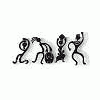-
Welcome to the eG Forums, a service of the eGullet Society for Culinary Arts & Letters. The Society is a 501(c)3 not-for-profit organization dedicated to the advancement of the culinary arts. These advertising-free forums are provided free of charge through donations from Society members. Anyone may read the forums, but to post you must create a free account.
Wine glasses
-
Similar Content
-
Shaoxing Wine 1 2
By liuzhou,
- 44 replies
- 18,075 views
-
- 239 replies
- 67,398 views
-
- 2 replies
- 1,675 views
-
- 0 replies
- 1,693 views
-
Wine Gums 1 2
By Gifted Gourmet,
- 34 replies
- 6,937 views
-
-
Recently Browsing 0 members
- No registered users viewing this page.




Recommended Posts